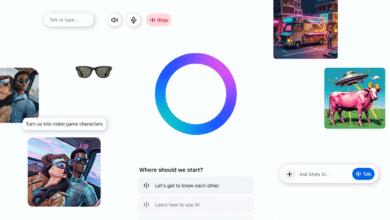Roy Lee on Why He’s Not Worried About Cheating Detectors

▼ Summary
– Cluely, an AI startup, gained attention for its ‘undetectability’ feature, which it initially marketed as a way to “cheat on everything.”
– Co-founder Roy Lee was suspended from Columbia University for admitting he used Cluely to cheat on a coding test for an Amazon job application.
– A Columbia student created Truely, an “anti-Cluely” tool, to detect unauthorized app usage during online meetings, but Lee dismissed its impact.
– Cluely has shifted its marketing strategy away from promoting cheating, rebranding with a new tagline and emphasizing transparency.
– Lee aims to position Cluely as a ChatGPT alternative, offering similar functionality while also analyzing on-screen content and audio.
The debate around AI-powered productivity tools has intensified as startups like Cluely push boundaries between assistance and academic integrity. The controversial platform, which initially gained attention for its “undetectability” feature, has drawn criticism from educators and competitors alike. Yet its co-founder Roy Lee remains unfazed by accusations that the technology enables cheating.
Lee, who was suspended from Columbia University after admitting to using an early version of Cluely during a coding assessment, recently dismissed concerns about detection tools like Truely, a rival product designed to flag unauthorized assistance. “Detection isn’t our focus,” Lee stated. “Invisibility was never the core value of Cluely, it’s just one optional feature. Most businesses disable it anyway due to compliance risks.”
Despite its early reputation as a cheating aid, Cluely has rebranded since securing $15 million in funding from Andreessen Horowitz. Its slogan shifted from “cheat on everything” to a more ambiguous “Everything You Need. Before You Ask.” Critics argue this pivot is damage control, but Lee insists the platform’s real potential lies beyond academic shortcuts.
His vision? To replace ChatGPT as the go-to AI assistant. “We want users to instinctively open Cluely instead of ChatGPT,” Lee explained. “Functionally, we offer the same capabilities, but with added context from your screen and microphone.” This ambition positions Cluely as more than just a study aid, framing it instead as a next-generation productivity tool.
While skeptics question whether Cluely can shake off its controversial origins, Lee’s confidence suggests the company is betting big on mainstream adoption. Whether enterprises, or educators, will embrace it remains to be seen.
(Source: TechCrunch)






